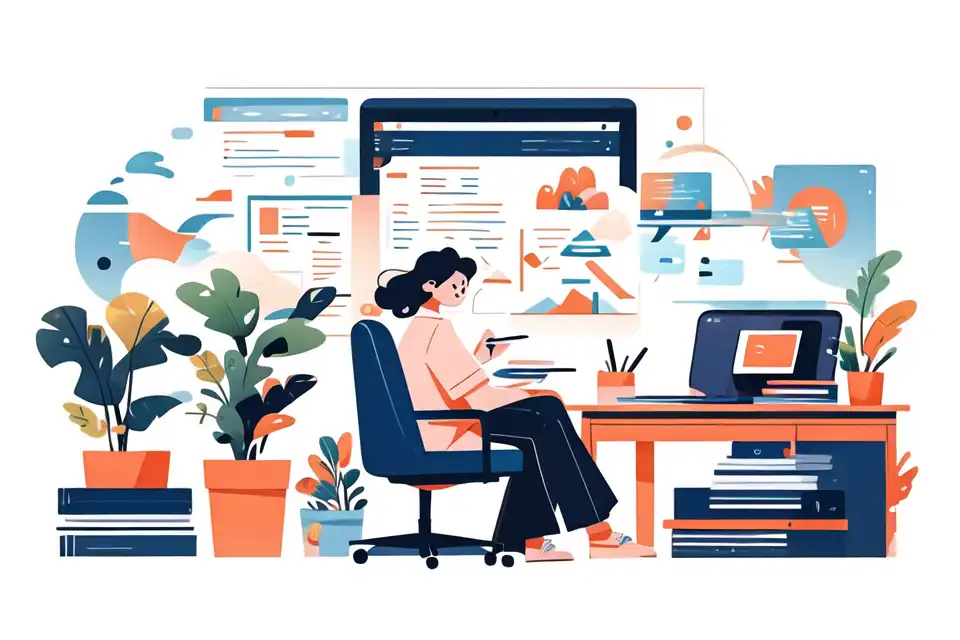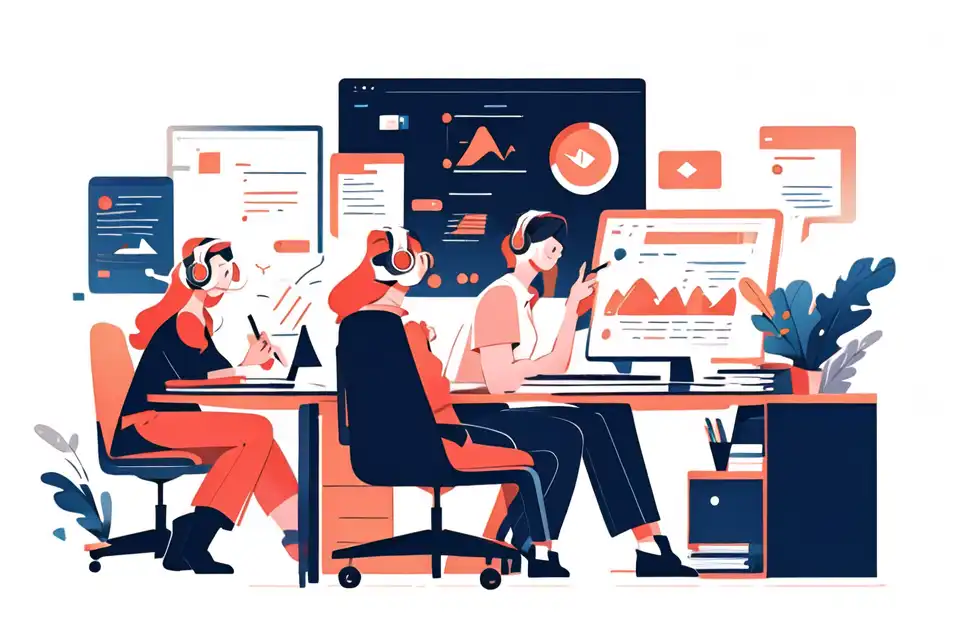How to Ask for Clarification Professionally
Master the art of professional communication in business settings with expert guidance. Learn how to ask for clarification professionally.
Try Lark for Free
In today's fast-paced and intricate professional landscape, effective communication plays an indispensable role in achieving organizational success. Clear and concise communication is key to ensuring that all stakeholders are on the same page. One aspect of effective communication that is often overlooked is the art of seeking clarifications professionally. In this article, we will delve into the significance of this skill, its practical applications, and how to master it for seamless professional interactions.
Why understanding how to ask for clarification professionally is crucial
Improve Understanding
Mastering the skill of seeking clarifications professionally enables individuals to gain comprehensive insights and clear up any ambiguities or uncertainties in their professional interactions. This, in turn, fosters an environment where everyone possesses a thorough understanding of the discussed subject matter.
Build Credibility
Professionals who possess the ability to ask for clarifications in a professional manner are perceived as credible and thorough in their approach. This skill is a testament to their dedication to achieving clarity and precision in their communication, establishing an impression of competence and reliability.
Strengthen Relationships
Effectively seeking clarifications professionally can contribute to building strong business relationships. It demonstrates respect for the opinions and insights of others, fostering an environment of open communication and mutual understanding.
Practical examples of dealing with how to ask for clarification professionally
Example 1: clarifying project expectations
Example 1: clarifying project expectations
A typical scenario when you don’t know how to ask for clarification professionally
In a team meeting, you are assigned a project with vague instructions and uncertain expectations.
Common mistakes made in this scenario
-
Assuming understanding without seeking clarifications
-
Proceeding with the task based on assumptions, leading to potential errors
Best expression in quotes for the scenario
"I want to ensure that I fully understand the project requirements. Could you elaborate on the specific expectations and deliverables?"
Example 2: seeking clarity in training sessions
Example 2: seeking clarity in training sessions
A typical scenario when you don’t know how to ask for clarification professionally
During a training session, you are presented with complex information, but you are unsure about certain details.
Common mistakes made in this scenario
-
Feeling hesitant to ask for further explanations
-
Attempting to navigate through the training without a comprehensive understanding
Best expression in quotes for the scenario
"I would appreciate it if you could provide additional details on [specific aspect] to ensure that I grasp the concept thoroughly."
Example 3: addressing misunderstandings in meetings
Example 3: addressing misunderstandings in meetings
A typical scenario when you don’t know how to ask for clarification professionally
In a meeting, there is a misinterpretation of specific data, and you are uncertain about its accuracy.
Common mistakes made in this scenario
-
Neglecting to address the misunderstanding to avoid appearing uninformed
-
Proceeding with flawed information, potentially impacting decision-making
Best expression in quotes for the scenario
"I believe there might be a misunderstanding regarding [specific data]. Could we clarify this point to ensure we are aligned?"
Use Lark Messenger to elevate your team communication.
Consequences of inadequate clarity in professional communication
Inadequate communication, particularly the failure to seek clarifications professionally, can have detrimental effects in professional settings.
- Misunderstandings: Ambiguities resulting from a lack of clarifications can lead to misinterpretations, potentially impacting the quality of work and decisions.
- Impaired Decision Making: Without a clear understanding of the communicated information, professionals may make erroneous decisions, hindering progress and profitability.
- Damaged Professional Relationships: Failure to seek clarifications can lead to dissatisfaction and mistrust among colleagues, impacting teamwork and productivity.
Learn more about Lark x Communication
Methods of phrasing how to ask for clarification professionally
Method 1: "Could you elaborate on..."
Using this method, professionals can request detailed elucidation on specific aspects, contributing to a thorough understanding of the subject matter.
Method 2: "I want to ensure that..."
This method demonstrates the intention to achieve clarity and understanding, signifying professionalism and dedication to accurate comprehension.
Method 3: "Could we clarify..."
Employing this method indicates a collaborative approach to seeking clarification, fostering a communicative environment for constructive discussion.
Use Lark Messenger to elevate your team communication.
Do's and dont's when you don't know how to ask for clarification professionally
Do's
| Do's |
|---|
| Be clear and concise |
| Seek permission to ask questions |
| Use polite and respectful language |
Don'ts
| Don'ts |
|---|
| Assume understanding without clarity |
| Use aggressive or accusatory language |
| Disregard non-verbal communication cues |
Conclusion
In summary, the ability to seek clarifications professionally is an indispensable skill in the realm of effective professional communication. By understanding its importance, applying practical examples, acknowledging its consequences, and mastering strategies for seeking clarifications, individuals can enhance their credibility, fortify professional relationships, and ensure a thorough understanding of communicated information.








